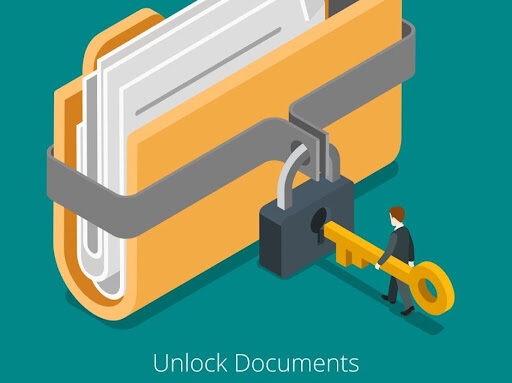A Rationale and Appeal for Making Biblical Content Available Under Open Licenses
It is clear the church of the global south is expanding rapidly. But in terms of access to Bible translations and theological resources that make possible sound hermeneutics and accurate interpretation of Scripture, access to resources is lagging far behind. These essential tools are available to only a small fraction of the global church, and then only to those who have the means to acquire them and speak one of the few languages in which they are available (Usually English). This means that front-line National (e.g., indigenous) leaders of local churches all over the world who urgently desire to become doctrinally sound and confidently teach faithful theology within their own cultural contexts are cut off from the wealth of biblical knowledge that is available only to a privileged minority.
The Opportunities of the 21st Century are bringing with it profound changes, many of which constitute significant opportunities to meet the massive need of the global church for biblical content. Globalization continues to increase the life expectancy and general standard of living of many. These economic improvements are expanding and, in turn, being further improved by the global reach of mobile technology. Freeland observes: “Today, two terrifically powerful forces are driving economic change: the technology revolution and globalization… together they constitute a dramatic gearshift comparable in its power and scale to the industrial revolution” (2012:4). Two-thirds of the world now have a mobile phone, and over half of the world uses the internet.
The Barrier of Copyright Law
Copyright reserves all rights for the owner. It is designed to establish state-sanctioned and globally applicable control over the use of content by its creator to increase its commercial value and maximize the potential for its monetization. The original intent of these restrictions was to encourage further innovation and creativity that would benefit society, so it was originally limited to fourteen years. Over time, the term of copyright has been extended considerably. It now lasts for more than a lifetime.
Meeting the Need of the Global Church
In the United States, work is under copyright protection the moment it is created and fixed in a tangible form that it is perceptible either directly or with the aid of a machine or device. Some countries provide limited exceptions for “private use” and “fair use” (or “fair dealing”), though the laws differ from country to country. If owners of resources desire to unambiguously permit others to translate their materials, a preferable approach would be to make them available under the terms of a Free Translate License, which explicitly grants the freedom to translate the work and for the translator to own the rights to their own translation.
But for the most part, the biblical resources that could otherwise be useful to the global church for translation of the Bible and creation of other biblical resources are governed by licenses that greatly restrict their usefulness. I have been a proponent of the “open” model for several years, and many objections to it have been raised. All of them are variations of six main hindrances, any of which may prevent the owner of a biblical resource from releasing it without restrictions for use by the global church. Each of these hindrances is addressed in this section.
1. Fear of bad things happening to good content
2. Reluctance to give sacrificially
3. Content-dependent monetization models
4. Incomplete missiology
5. Confusing copyright and trademark
6. Misunderstanding ‘open’ licenses
License Generosity, by definition, requires a willingness to sacrifice for the good of others. Releasing biblical content under an open license for the good of the global church gives for free what might otherwise be sold for profit. Doing so requires humility, because it makes it easier for others to take advantage of one’s generosity by increasing their own ministry. Here we look to the example of the Apostle Paul in prison, who was taken advantage of by those who preached Christ out of “envy and rivalry… out of selfish ambition, not sincerely, thinking they will cause me trouble in my imprisonment” (Php. 1:15-18, CSB). Even so, Paul rejoiced that the Gospel was being spread by these people.
What Open Licensing Means
The term “open” means: Anyone can freely access, use, modify, and share for any purpose (subject, at most, to requirements that preserve provenance and openness). The specific freedoms contained in this concise definition can be summarized by the “5 Rs” of freedom:
- Retain – The right to make, own, and control copies of the content (e.g., download, duplicate, store, and manage).
- Reuse – The right to use the content in a wide range of ways (e.g., in a class, in a study group, on a website, in a video).
- Revise – The right to adapt, adjust, modify, or alter the content itself (e.g., translate the content into another language).
- Remix – The right to combine the original or revised content with other material to create something new (e.g., incorporate the content into a mashup, or to repurpose it for another use).
- Redistribute – The right to share copies of the original content, your revisions, or your remixes with others (e.g., give a copy of the content to a friend).
Conclusion
While this vision may seem far removed from today’s world, all the pieces are in place for it to become a reality with one exception. The global church is on the rise and needs the resources. Twenty-first century technology makes it all supremely doable, but what is lacking is the legal freedom to use Bible translations and other biblical resources without restriction. This need can be met by making Bible translations and other biblical resources available under open licenses. This requires overcoming some obstacles pertaining to theology, missiology, intellectual property law, and technology. Once these are overcome, the global church is no longer hindered from collaborating to make the content available in every language where it is desired.
About the Author
Tim Jore serves as an innovation and mission strategist with unfoldingWord at https://unfoldingword.org
This article is a summary of the longer article of the same title by Tim Jore, June 14, 2019. For access to the full version: https://unfoldingword.org/letting-go.
This article is available under the terms of a Creative Commons Attribution-ShareAlike 4.0 License (CC BY-SA).
References
Freeland, Chrystia. 2012. Plutocrats: The Rise of the New Global Super-Rich and the Fall of Everyone Else. Penguin Books.
© Moving Missions 2022

